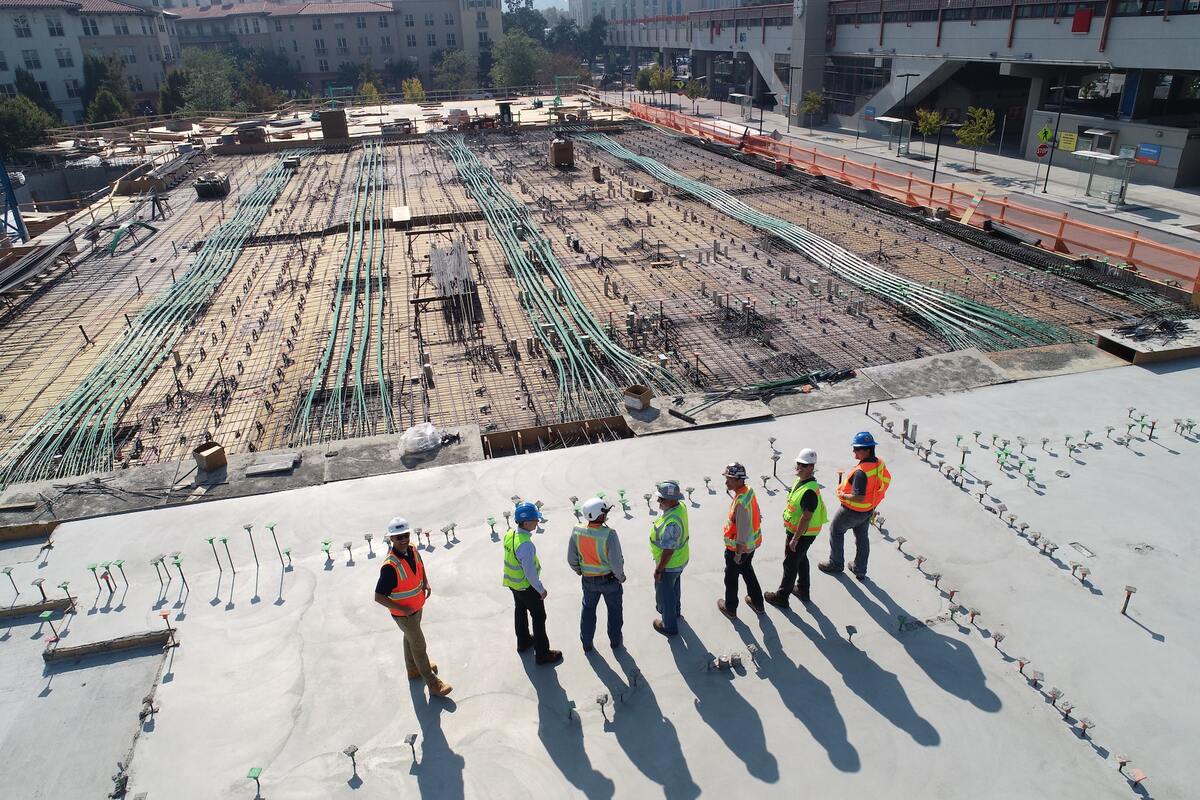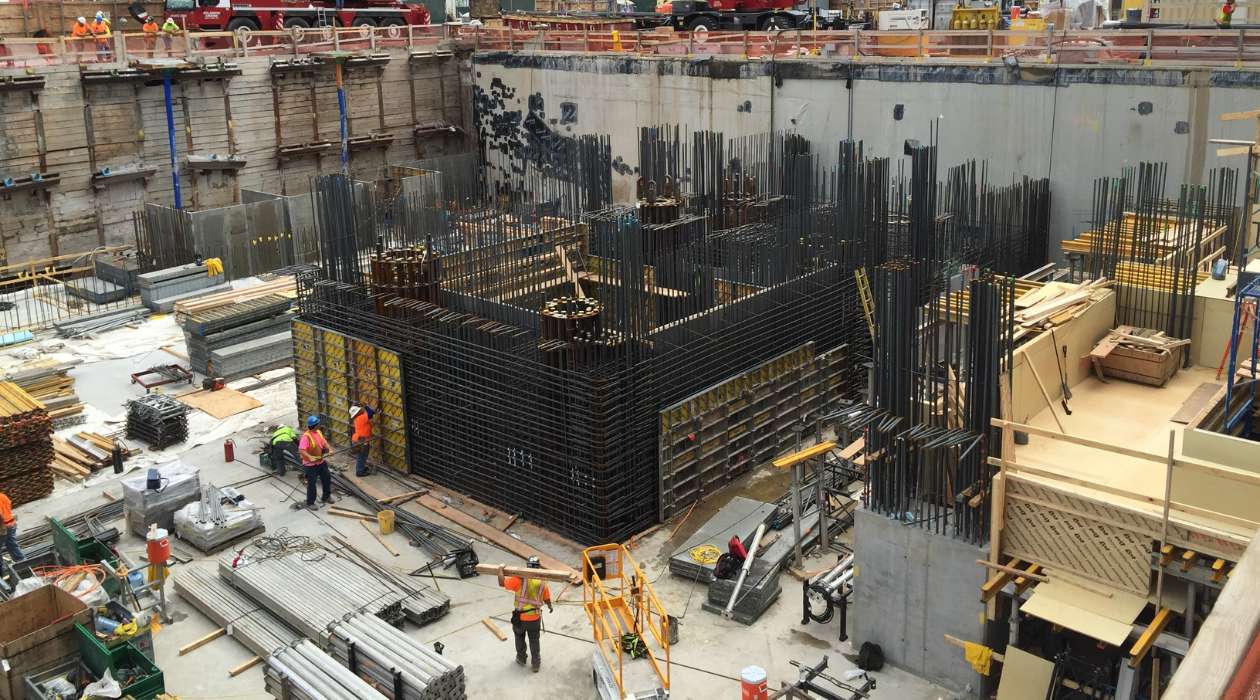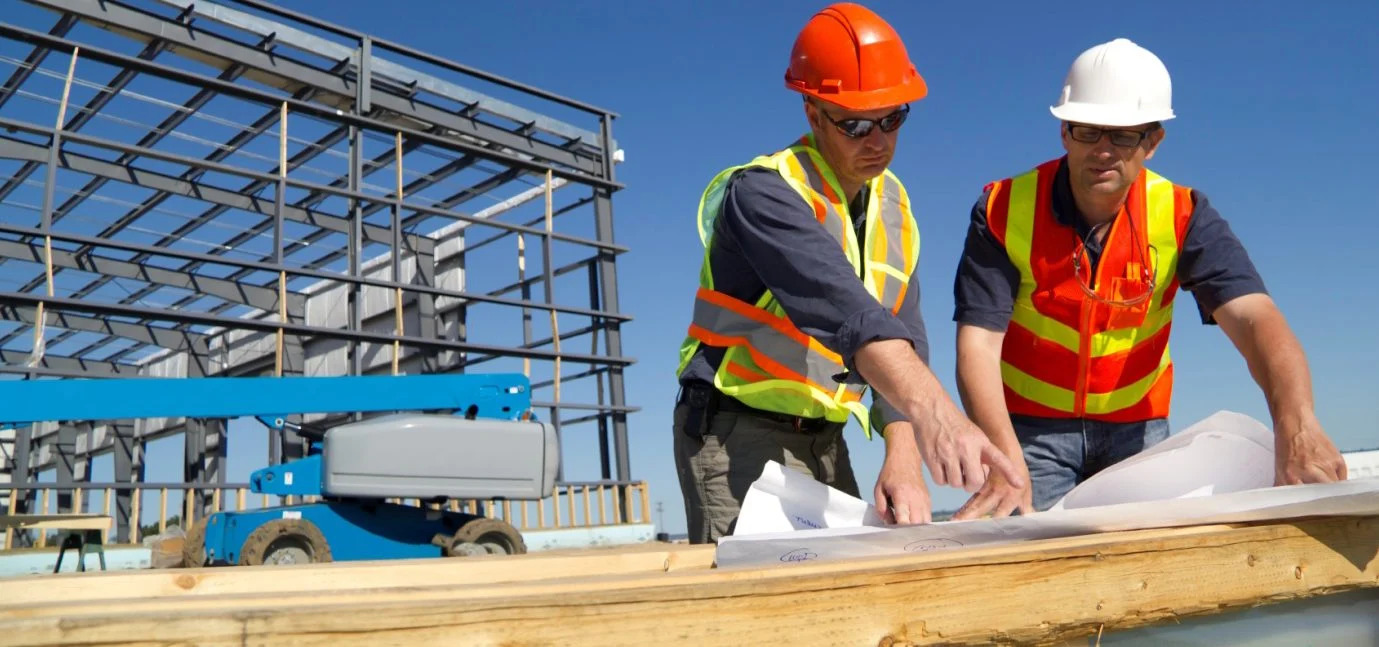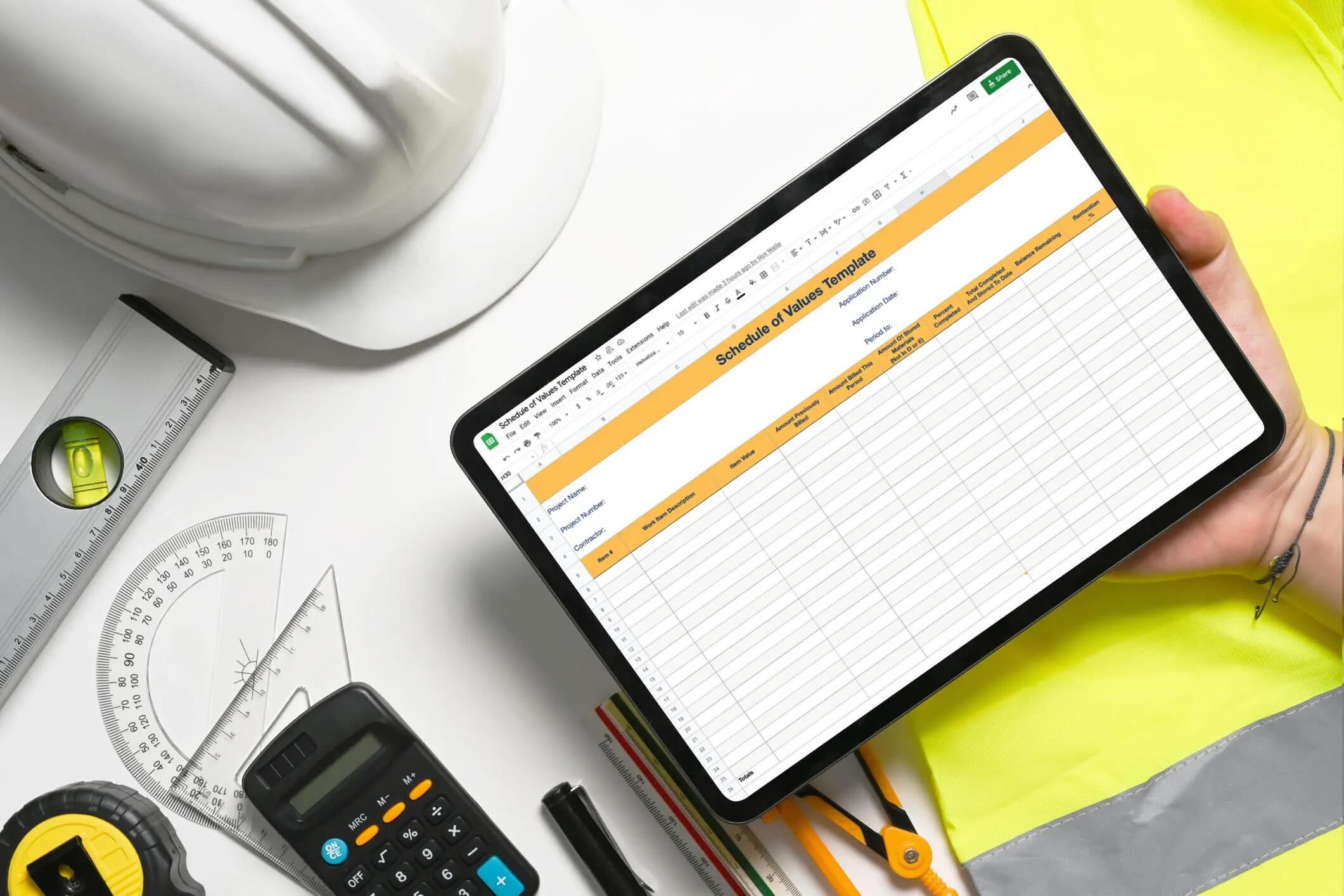Home>diy>Building & Construction>How Do You Value A Construction Company


Building & Construction
How Do You Value A Construction Company
Modified: February 25, 2024
Learn the best methods for valuing a construction company, including key factors and considerations. Gain insights into the building-construction industry.
(Many of the links in this article redirect to a specific reviewed product. Your purchase of these products through affiliate links helps to generate commission for Storables.com, at no extra cost. Learn more)
Introduction
Valuing a construction company is a critical process that requires a deep understanding of the industry and its unique dynamics. Whether you are a potential buyer, investor, or looking to sell your own construction business, determining its value is crucial for making informed decisions.
The construction industry is a complex and highly competitive sector that encompasses a wide range of activities, including residential, commercial, industrial, and infrastructure projects. With so many variables at play, it can be challenging to accurately evaluate the worth of a construction company.
In this article, we will delve into the factors to consider when valuing a construction company. We will explore various financial analysis methods, such as asset-based valuation, earnings-based valuation, and market comparison. Additionally, we will discuss the importance of evaluating intangible assets and goodwill, as well as considering future growth potential in the valuation process.
By understanding these key elements, you will gain insights into how to effectively value a construction company and make informed decisions based on its true worth.
Key Takeaways:
- Understanding the construction industry’s cyclical nature, competitive landscape, and regulatory environment is crucial for accurately valuing a construction company. Factors such as resource requirements and technological trends also play a significant role in the valuation process.
- When valuing a construction company, it’s essential to consider financial analysis methods such as asset-based valuation, earnings-based valuation, market comparison, and the evaluation of intangible assets and goodwill. Assessing future growth potential is also vital for a comprehensive valuation.
Read more: How To Value A Construction Company For Sale
Understanding the Construction Industry
The construction industry is a vital sector that plays a significant role in economic development and infrastructure advancement. It encompasses a wide range of activities, including building construction, civil engineering, renovation, and infrastructure projects. Understanding the unique dynamics of the construction industry is essential when valuing a construction company.
One of the key aspects of the construction industry is its cyclical nature. It often experiences ups and downs in response to changing economic conditions. During periods of economic growth, there is typically an increase in construction projects, leading to higher demand for construction services. On the other hand, during economic downturns, construction activity tends to slow down.
Another important factor to consider is the competitive landscape within the industry. The construction sector is highly competitive, with numerous companies vying for projects and contracts. This competition can influence the valuation of a construction company, as it impacts factors such as market share, reputation, and profitability.
Furthermore, the construction industry is subject to various regulations and compliance requirements. Government regulations related to safety, environmental impact, and building codes play a significant role in shaping the operations and financial performance of construction companies. It is crucial to assess a company’s compliance with these regulations when valuing it.
Moreover, the construction industry relies heavily on skilled labor, equipment, and materials. The availability and cost of these resources can influence a construction company’s profitability. Additionally, technological advancements, such as Building Information Modeling (BIM) and green building practices, have become essential considerations in the industry.
By gaining a comprehensive understanding of the construction industry, including its cyclicality, competitive landscape, regulatory environment, resource requirements, and technological trends, you can better assess the value of a construction company.
Factors to Consider in Valuing a Construction Company
When valuing a construction company, several factors come into play. Understanding these factors is essential to ensure an accurate assessment of the company’s worth. Here are the key factors to consider:
- Financial Performance: Evaluating the financial performance of a construction company is crucial. This includes analyzing revenue, profitability, cash flow, and debt levels. The company’s historical financial statements, such as income statements and balance sheets, provide valuable insights into its financial health and stability.
- Backlog and Contracts: The company’s backlog, which represents the value of its contracts yet to be completed, is a significant factor in valuation. A larger backlog indicates a healthy pipeline of work and future revenue. Additionally, assessing the types of contracts the company has, such as long-term contracts or government projects, can provide valuable information about its stability and potential growth.
- Market Reputation: The reputation and brand image of a construction company can impact its value. A strong reputation for quality work, on-time completion, and client satisfaction can lead to a higher valuation. Conversely, a company with a poor reputation may face challenges in attracting new clients and securing contracts.
- Management Team: The competence and experience of the management team play a vital role in valuing a construction company. Assessing the qualifications, industry expertise, and track record of the management team provides insight into their ability to successfully navigate challenges and drive the company’s growth.
- Market Conditions: Understanding the current market conditions and trends in the construction industry is essential for valuation. Factors such as supply and demand dynamics, competition, and economic indicators impact the company’s growth potential and market value.
- Operational Efficiency: Evaluating the company’s operational efficiency and productivity is crucial. This includes assessing its project management capabilities, utilization of resources, cost control measures, and ability to meet project deadlines. A well-managed company that maximizes operational efficiency is typically valued higher.
- Risk Factors: Assessing the risks associated with the construction company is vital for valuation. This includes evaluating factors such as legal and regulatory risks, project-specific risks, environmental risks, and safety records. Understanding and quantifying these risks are crucial in determining the company’s value.
- Market Growth Potential: Consider the company’s potential for future growth and expansion. This includes assessing its ability to penetrate new markets, diversify its services, and capitalize on emerging trends within the construction industry. A construction company with strong growth prospects generally commands a higher valuation.
By carefully considering these factors, you can develop a comprehensive understanding of a construction company’s value and make informed decisions based on its potential for growth and profitability.
Financial Analysis Methods for Valuation
Financial analysis plays a crucial role in valuing a construction company. It involves examining the company’s financial data and using various methods to determine its worth. Here are some commonly used financial analysis methods for valuation:
- Asset-Based Valuation: This method calculates the value of a construction company based on its net assets. It involves determining the fair market value of the company’s tangible assets, such as land, buildings, equipment, and inventory, subtracting liabilities, and adding any intangible assets or goodwill. This approach is useful when the company’s assets significantly contribute to its value.
- Earnings-Based Valuation: Also known as the income approach, this method determines the company’s value based on its expected future earnings. It involves projecting the company’s future cash flows and discounting them to their present value using an appropriate discount rate. This approach provides insights into the company’s earning potential and its ability to generate returns for investors.
- Market Comparison: The market comparison method compares the construction company’s financial performance and metrics with similar companies in the industry. This includes analyzing key ratios such as price-to-earnings (P/E) ratio, price-to-sales (P/S) ratio, and price-to-book (P/B) ratio. By comparing the company’s valuation multiples with industry benchmarks, it is possible to determine its relative value.
- DCF Analysis: The discounted cash flow (DCF) analysis is a widely used method for valuing construction companies. It involves estimating the future cash flows expected from the company, discounting them to their present value, and summing them up to determine the company’s intrinsic value. This approach takes into account the time value of money and provides a comprehensive assessment of the company’s financial prospects.
- Comparable Transactions: This method involves analyzing previous mergers and acquisitions (M&A) transactions in the construction industry to assess the value of the company. By comparing the financial terms and multiples of similar transactions, it is possible to estimate the company’s potential worth.
It is important to note that no single financial analysis method provides a definitive valuation. Instead, using a combination of these methods, along with industry knowledge and professional judgment, can help in arriving at a more accurate and reliable valuation of a construction company.
By applying these financial analysis methods, you can gain insights into the company’s value and make well-informed decisions when buying, selling, or investing in a construction company.
Estimating the Company Value Based on Assets
One method for valuing a construction company is by estimating its worth based on its assets. This approach, known as asset-based valuation, takes into account the tangible and intangible assets held by the company. Estimating the company value using assets can provide a solid foundation for understanding its intrinsic worth. Here are the key elements involved in valuing a construction company based on assets:
- Tangible Assets: Tangible assets include physical assets that can be quantified and assigned a monetary value. In the context of a construction company, these assets may include land, buildings, equipment, vehicles, and inventory. It is important to assess the fair market value of these assets, considering factors such as depreciation, maintenance, and potential resale value.
- Liabilities: In order to determine the net asset value of a construction company, it is essential to subtract its liabilities from the value of its tangible assets. Liabilities may include loans, outstanding debts, and other financial obligations. Evaluating the company’s liabilities ensures an accurate estimation of its asset-based value.
- Intangible Assets and Goodwill: Intangible assets, such as intellectual property, trademarks, patents, and brand value, can significantly contribute to the overall value of a construction company. Identifying and assessing the worth of these intangible assets is crucial in determining the company’s asset-based value. Additionally, goodwill, which represents the reputation and customer loyalty of the company, is considered an intangible asset and should be factored into the valuation.
- Adjusted Book Value: The adjusted book value is calculated by adjusting the company’s financial statements to reflect the current market value of its assets and liabilities. This may involve reevaluating the book values of assets based on their fair market value and considering any changes in the company’s liabilities. The adjusted book value provides a more realistic estimate of the company’s asset-based worth.
- Consideration of Depreciation: In the construction industry, assets such as buildings and equipment may undergo depreciation over time. Accounting for depreciation in the asset-based valuation is important to reflect the true value of these assets. By factoring in depreciation, a more accurate estimation of the company value can be obtained.
It is important to note that while asset-based valuation provides a solid foundation for determining the value of a construction company, it should be used in conjunction with other financial analysis methods. By considering both tangible and intangible assets, liabilities, and adjusted book values, a more comprehensive assessment of the company’s asset-based worth can be achieved.
By conducting a thorough analysis of the company’s assets and liabilities, including intangible assets and goodwill, and making appropriate adjustments, you can estimate the value of the construction company based on its assets.
When valuing a construction company, consider factors such as the company’s financial performance, reputation, backlog of projects, and the current market conditions. It’s also important to assess the company’s assets, liabilities, and potential for future growth.
Read more: How To Name A Construction Company
Valuing a Construction Company Based on Earnings
One widely used method for valuing a construction company is by assessing its earnings. Evaluating the company’s earnings and cash flows provides insights into its financial performance and profitability, making it a key factor in determining its value. Here are the key considerations when valuing a construction company based on earnings:
- Historical Earnings: Analyzing the company’s historical earnings is the first step in determining its value based on earnings. This involves reviewing its financial statements, such as income statements, and assessing the trends and patterns in revenue and profitability over time. Understanding the company’s historical earnings performance provides a basis for estimating its future earnings potential.
- Projected Cash Flows: Estimating the company’s projected cash flows is essential for valuing it based on earnings. This involves creating financial forecasts that take into account factors such as future contracts, revenue streams, cost trends, and market conditions. Projecting cash flows allows for a more accurate assessment of the company’s earning potential.
- Discounted Cash Flow (DCF) Analysis: The DCF analysis is a widely used method that values a construction company based on its expected future cash flows. This approach considers the time value of money, as future cash flows are discounted to their present value using an appropriate discount rate. By summing up the discounted cash flows, the intrinsic value of the company is determined. The DCF analysis provides a comprehensive assessment of the company’s earnings potential and its present value.
- Profitability Ratios: Analyzing profitability ratios is crucial in valuing a construction company based on earnings. Key ratios include gross profit margin, operating profit margin, and net profit margin. These ratios provide insights into the company’s ability to generate profits from its operations and its overall profitability compared to industry benchmarks. Higher profitability ratios generally indicate a more valuable company.
- Industry Benchmarking: Comparing the company’s earnings performance with industry benchmarks can provide additional context for valuation. This involves analyzing key financial metrics, such as price-to-earnings (P/E) ratio and price-to-sales (P/S) ratio, for similar companies in the construction industry. By assessing how the company’s earnings stand relative to its peers, a more accurate valuation can be obtained.
Valuing a construction company based on earnings provides a forward-looking perspective on its worth. By considering historical earnings, projected cash flows, conducting a DCF analysis, evaluating profitability ratios, and industry benchmarking, a comprehensive assessment of the company’s value based on earnings can be achieved.
It is important to note that valuing a construction company based on earnings should be done in conjunction with other valuation methods to ensure a more accurate and well-rounded evaluation.
Determining the Value of a Construction Company through Market Comparison
One commonly used method for determining the value of a construction company is through market comparison. This approach involves comparing the company’s financial performance and metrics with similar companies in the industry to assess its relative value. Market comparison provides valuable insights into how the company’s worth stacks up against its peers. Here are the key considerations when valuing a construction company through market comparison:
- Comparable Companies: Identifying comparable companies within the construction industry is the first step in market comparison. These companies should have similar characteristics, such as size, scope of operations, geographic presence, and specialization. Analyzing companies that operate in the same market segment or offer similar services provides a relevant basis for comparison.
- Financial Metrics: Evaluating key financial metrics is essential in market comparison. Ratios such as price-to-earnings (P/E), price-to-sales (P/S), and price-to-book (P/B) ratios are commonly used. These ratios provide insights into how the market values the company relative to its earnings, sales, and book value. Higher ratios suggest a higher valuation in comparison to similar companies, while lower ratios indicate an undervalued position.
- Operational Performance: Assessing the operational performance of the construction company is crucial in market comparison. This involves analyzing factors such as revenue growth, profit margins, return on assets (ROA), and return on equity (ROE). Comparing these metrics with those of comparable companies allows for a more comprehensive assessment of the company’s value relative to its industry peers.
- Market Trends and Conditions: Market trends and conditions play a significant role in market comparison. Understanding the current state of the construction industry, market demand, and economic factors that impact the industry are key considerations. For example, if the industry is experiencing rapid growth and there is high demand for construction services, the company’s value may be higher in comparison to periods of economic downturn.
- Reputation and Market Position: The reputation and market position of the construction company also influence its value in market comparison. A strong reputation for quality work, client satisfaction, and reliability can lead to a higher valuation. Similarly, a company with a strong market position and a competitive advantage is likely to be more valuable in comparison to its peers.
By conducting a thorough analysis of comparable companies, assessing key financial metrics and operational performance, considering market trends and conditions, and evaluating the reputation and market position of the construction company, a comprehensive assessment of its value through market comparison can be achieved.
It is important to note that while market comparison provides valuable insights, it should be used in conjunction with other valuation methods to ensure a more accurate and well-rounded assessment of the construction company’s worth.
Evaluating the Intangible Assets and Goodwill
When valuing a construction company, it is important to consider the intangible assets and goodwill it possesses. While tangible assets can be relatively easy to quantify, intangible assets play a significant role in determining the overall value of a company. Evaluating these intangible assets and goodwill provides a more comprehensive understanding of the construction company’s worth. Here are the key considerations when evaluating intangible assets and goodwill:
- Brand Value: The construction company’s brand value reflects its reputation, recognition, and customer loyalty. A strong and well-established brand can contribute positively to the company’s value. Assessing the perception of the company’s brand in the market and its ability to attract customers can provide insights into its competitive advantage and potential for future growth.
- Intellectual Property: Construction companies may have intellectual property assets, such as patents, trademarks, and copyrights. These assets can provide a competitive edge and enhance the company’s value. Evaluating the intellectual property held by the company and its potential for generating revenue or protecting its market position is important in determining its worth.
- Contracts and Relationships: Construction companies often have long-term contracts with clients, suppliers, and subcontractors. These contractual relationships can create a stable revenue stream and provide a competitive advantage in the industry. Assessing the value of these contracts and the strength of the company’s relationships within the construction ecosystem is crucial in evaluating its worth.
- Employee Expertise: The knowledge, experience, and expertise of the company’s employees are intangible assets that contribute to its value. Skilled and dedicated employees can enhance operational efficiency, project management capabilities, and customer satisfaction. Evaluating the qualifications and expertise of the company’s employees and their contribution to the company’s success is important when assessing its overall value.
- Goodwill: Goodwill represents the value of the company’s reputation, customer relationships, and other intangible factors that contribute to its ongoing success. It is calculated by subtracting the company’s identifiable net assets from its total value. Goodwill can arise from factors such as strong customer relationships, favorable brand image, and market position. Assessing the value of goodwill is crucial as it reflects the intangible assets that may not be captured in the company’s financial statements.
By evaluating the intangible assets and goodwill of a construction company, you can gain a more holistic understanding of its value. Assessing its brand value, intellectual property, contractual relationships, employee expertise, and goodwill allows for a comprehensive evaluation of its competitive advantage, reputation, and growth potential.
Remember that while tangible assets are easier to quantify, intangible assets and goodwill are equally important when valuing a construction company and should be carefully considered in conjunction with other valuation methods.
Considering Future Growth Potential in Valuation
When valuing a construction company, it is crucial to consider its future growth potential. Assessing the company’s ability to grow and expand in the future provides valuable insights into its long-term value. Here are the key factors to consider when evaluating the future growth potential of a construction company:
- Market Trends and Demand: Understanding the current market trends and demand in the construction industry is essential. Analyzing factors such as population growth, urbanization, infrastructure investments, and government initiatives can help in assessing the potential for future market growth. A construction company operating in a growing market is likely to have higher growth potential and, therefore, a higher valuation.
- Industry Advancements and Technology: Keeping abreast of industry advancements and technological innovations is important for evaluating future growth potential. Construction companies that embrace new technologies, such as Building Information Modeling (BIM) and sustainable construction practices, are well-positioned for growth. Assessing the company’s investment in research and development, its adoption of innovative practices, and its ability to stay ahead of the competition will provide valuable insights into its growth potential.
- Expansion Opportunities: Evaluating the company’s potential for geographic expansion or diversification of services can uncover additional growth opportunities. Assessing the company’s existing client base, relationships with suppliers and subcontractors, and the ability to enter new markets or offer complementary services can help determine its growth potential. Companies with strategic expansion plans typically command a higher valuation.
- New Contracts and Projects: The company’s ability to secure new contracts and projects is a key indicator of its growth potential. Assessing the company’s track record in winning contracts, its pipeline of upcoming projects, and its relationships with key clients and stakeholders provide insights into its growth prospects. A healthy backlog and a strong reputation for successful project delivery contribute to a higher valuation.
- Management and Leadership: Evaluating the competence and vision of the company’s management team is vital for determining its growth potential. Strong leadership, strategic planning, and the ability to navigate challenges and seize opportunities are important factors to consider. Assessing the management team’s past achievements and their ability to drive growth and innovation provides valuable insights into the company’s future prospects.
By considering the future growth potential of a construction company, you can better assess its long-term value. Analyzing market trends, industry advancements, expansion opportunities, new contracts, and the quality of management allows for a more comprehensive evaluation of its growth potential.
Remember that estimating future growth potential involves some level of uncertainty. It is crucial to use realistic assumptions, consider a range of scenarios, and continuously monitor market conditions to ensure the accuracy of the valuation.
Read more: How To Sell A Construction Company
Conclusion
Valuing a construction company is a complex process that requires a deep understanding of the industry and careful evaluation of various factors. By considering these factors, informed decisions can be made when buying, selling, or investing in a construction business. Here are the key takeaways from this article:
Understanding the construction industry is crucial for accurately valuing a construction company. Factors such as the cyclical nature of the industry, competitive landscape, regulatory environment, and resource requirements should be considered.
Financial analysis methods play a vital role in determining the value of a construction company. Asset-based valuation, earnings-based valuation, market comparison, discounted cash flow analysis, and comparables transactions are common methods used for valuation.
When valuing a construction company based on assets, it is important to assess tangible assets, liabilities, intangible assets, and goodwill. These factors provide a more comprehensive understanding of the company’s intrinsic value.
Evaluating the company’s earnings and cash flows helps in estimating its future earning potential. Historical earnings, projected cash flows, profitability ratios, and industry benchmarking are key considerations in this valuation approach.
Market comparison allows for a relative assessment of the construction company’s value compared to similar companies in the industry. Financial metrics, operational performance, market trends, and reputation are key factors to consider in this method.
The evaluation of intangible assets and goodwill provides insights into the company’s reputation, brand value, intellectual property, contractual relationships, and employee expertise. These factors contribute to the overall value of the construction company.
Considering the future growth potential of the construction company is essential. Factors such as market trends, industry advancements, expansion opportunities, new contracts, and the quality of management help assess its long-term value.
In conclusion, valuing a construction company requires a comprehensive analysis of its financial performance, assets, earnings, market position, and growth potential. By considering these factors and using a combination of valuation methods, a more accurate assessment of the company’s true worth can be achieved. Conducting thorough due diligence and seeking professional advice are essential to making well-informed decisions in the construction industry.
Frequently Asked Questions about How Do You Value A Construction Company
Was this page helpful?
At Storables.com, we guarantee accurate and reliable information. Our content, validated by Expert Board Contributors, is crafted following stringent Editorial Policies. We're committed to providing you with well-researched, expert-backed insights for all your informational needs.














0 thoughts on “How Do You Value A Construction Company”